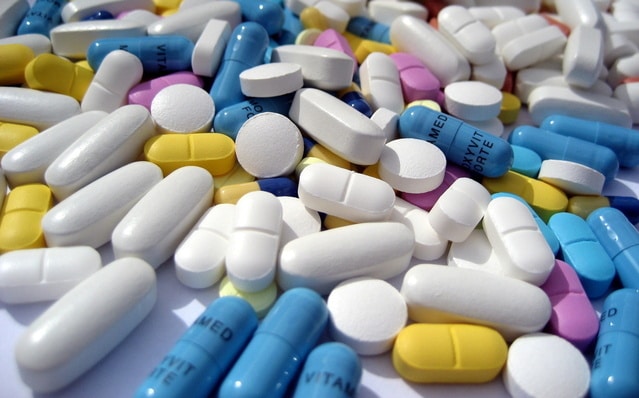How Can Antibiotics Cause Constipation? – Overview
Doctors prescribe antibiotics to treat bacterial infections, making it one of the most widely used drugs in the US. However, some who are worried about their side effects, primarily on gut health, may ask, “can antibiotics cause constipation?”
The question might have come up as some people suffered from digestive issues after taking medications, including antibiotics.
Some of these medications trigger the rise of gut problems as they prevent the large intestine’s muscle and nerve function, while others cause an imbalance in the gut bacteria. They disrupt normal bowel movement, leading to constipation, gas, diarrhea, acid reflux, and similar digestive problems.
Learning More About Antibiotics
Antibiotics are developed to kill bacteria and prevent them from thriving in the body. These drugs might stop the formation of bacteria’s cell walls or modify their cell membrane, causing them to die. Some of these medications are designed to prevent bacterial growth, while others immediately kill the bacteria.
There are two types of antibiotics, and knowing this might help answer the question.
The first group is called broad-spectrum antibiotics. These types of antibiotics eliminate a lot of bacterial strains, even those that are considered beneficial bacteria.
The second group would be narrow-spectrum antibiotics. These are formulated to target only specific bacterial species.
Can Antibiotics Cause Constipation?
If you’ve been prescribed broad-spectrum antibiotics, there is a higher risk of these drugs killing the good bacteria in the gut, causing an imbalance. This, in turn, may lead to diarrhea, gas, and, sometimes, constipation.
So, the response to “can antibiotics cause constipation?” is yes.
Medications can indeed trigger constipation, which qualifies it as secondary constipation. The same goes for difficulty passing stools due to underlying health problems, the most common of which include irritable bowel syndrome, bowel-related infectious illnesses, conditions caused by inflammation.
Antibiotics can be categorized into two – narrow-spectrum and broad-spectrum.
Narrow-spectrum antibiotics zero in only on target bacterial species.
On the other hand, knowing more about broad-spectrum antibiotics will help answer the question. This is because these types of antibiotics attack many kinds of bacteria, including the beneficial ones in your gut.
Broad-spectrum antibiotics eliminate pathogenic bacteria and do not distinguish the good ones from the bad ones, disrupting the gut flora’s composition.
How Can They Cause Constipation?
There are two ways in which taking antibiotics may trigger constipation.
First, these medications can eliminate gut bacteria, including beneficial ones. The gut is home to an interesting array of bacteria that help digest food and sort waste that the body does not need.
The bad news is that while antibiotics can treat certain conditions, the broad-spectrum ones can kill beneficial bacteria as collateral damage to killing infection-causing bacteria.
As a result, the loss of good bacteria may cause an imbalance in the gut flora that, in turn, may lead to intestinal problems. One of these might be constipation.
According to studies, taking antibiotics may harm at least 30% of the gut’s beneficial bacteria.
Second, antibiotics may prevent the absorption of some of the body’s key minerals such as magnesium, which is necessary for the gastrointestinal system’s normal function.
The body needs magnesium to promote gut movement by helping the intestinal muscles relax. This gut condition allows the food to pass smoothly through the digestive tract, lowering the risk of constipation.
How to Prevent Antibiotics-related Constipation

Home remedies to prevent constipation.
If antibiotics are a part of your maintenance drugs, then you’re at a higher risk of suffering from digestive problems, such as constipation.
You can still do something about it, though, by being proactive. Here are some steps you can take so even if there is an affirmative answer:
- Keep track of your mineral levels and the presence of beneficial gut bacteria, especially if you have been on antibiotics for years. Some patients may even require supplements to keep their key mineral levels up.
- Eat more magnesium-rich foods. Magnesium is usually found in green, leafy vegetables, such as chard and spinach, and black beans and almonds.
- Add more sources of good bacteria to your diet. These often include yogurt, kimchi, pickles, kefir, sauerkraut, and kombucha. These foods are rich in probiotics. Consult with your doctor about taking these foods or supplements once you’re on antibiotic treatment.
- Exercise more. Even something as quick as a 30-minute cardio daily can pump up your heart rate and breathing and cause your intestinal muscles to contract, improving bowel movement.
- Hydrate. Drink the recommended eight glasses of water daily and more. Water is a natural stool softener, so make sure to hydrate.
Antibiotics may be one of the causes of constipation, but you can treat it and even prevent it. It especially helps to take probiotics from your diet or supplements, drink more water, and exercise.
Can antibiotics cause constipation? Yes, they can, but you can also manage it and stop it from happening in the first place by following the tips above.
